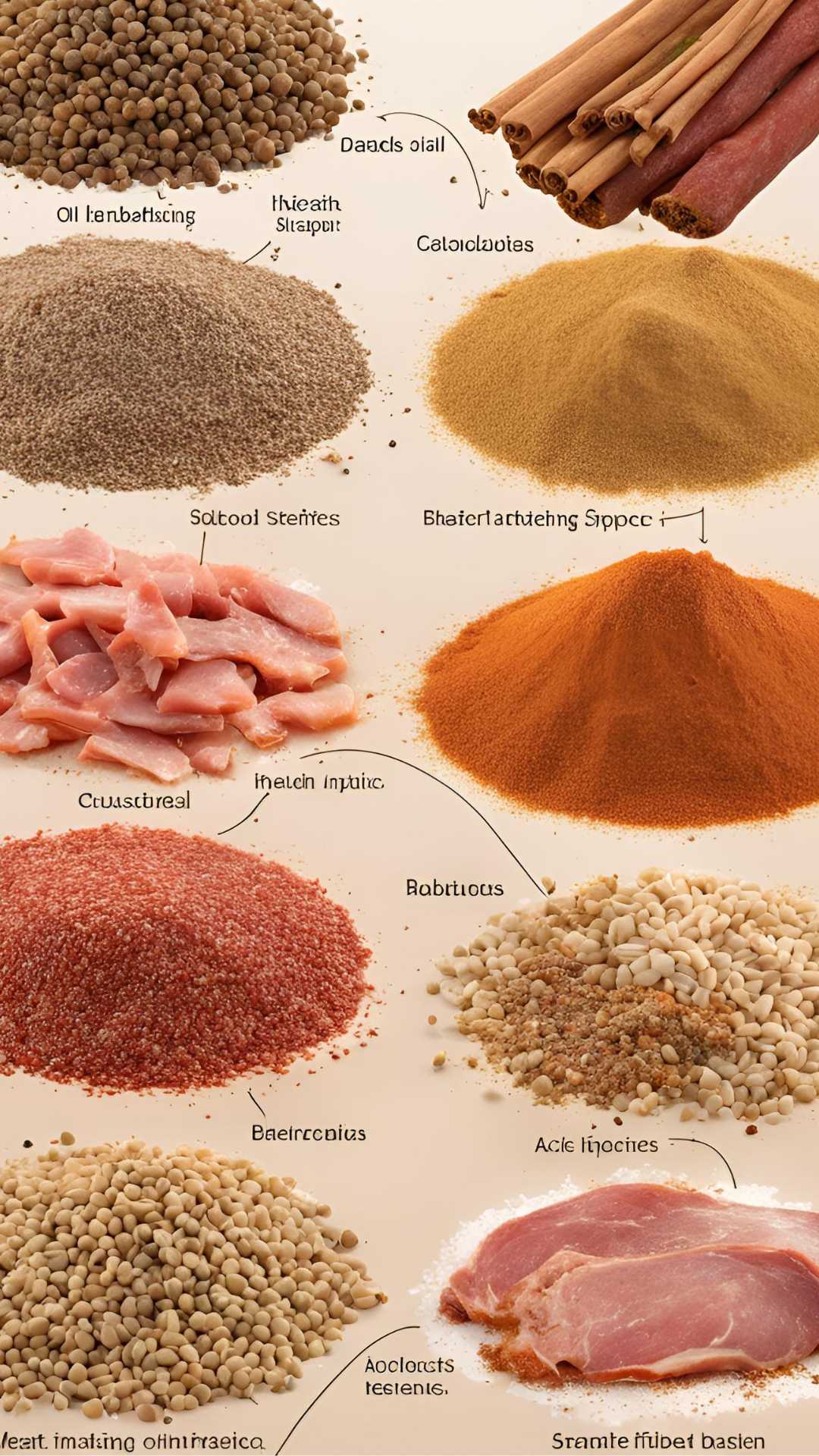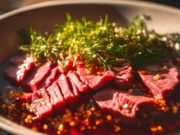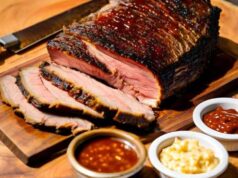- Key Takeaways:
- Understanding the Role of Acids in Marinades
- The Function of Fats in Marinades
- The Impact of Seasonings and Spices
- The Science Behind Flavor Penetration
- Common Myths about Marinating
- Best Practices for Marinating Different Types of Foods
- The Golden Rules of Marinating
- Marinating Tools and Equipment
- How Long to Marinate: Timing is Everything
- Culinary Techniques to Pair with Marinating
- Frequently Asked Questions
Marinating is more than just a cooking technique; it is a science that has the potential to transform ordinary ingredients into extraordinary dishes.
By understanding the roles of acids, fats, and seasonings, you can unlock a world of flavors and textures that elevate your culinary creations. This article breaks down the essential components of marinating, exploring how each element contributes to flavor penetration and moisture retention.
From debunking common myths to offering best practices for various foods, you will discover how to master the art of marination and enhance your cooking skills.
Key Takeaways:
- Acids, fats, and seasonings are essential components of marinating, each playing a unique role in enhancing flavor and texture.
- The science behind marinades involves understanding flavor penetration and the impact of different factors such as time, type of food, and cooking method.
- Following best practices and using the right tools and equipment can greatly enhance the marinating process and elevate the flavor of dishes.
Understanding the Role of Acids in Marinades
Acids play a crucial role in the marinating process, serving as essential ingredients in marinades that help tenderize meats such as chicken, beef, and fish while significantly influencing the overall flavor profile of your dishes.
The use of various acids, including vinegar and citrus juices, initiates a chemical reaction that breaks down proteins and fibers, enhancing the texture and juiciness of the meat. For example, an apple cider vinegar marinade can impart a subtle sweetness and acidity that enhances pork chops, while a lime juice marinade not only adds a zesty flavor to shrimp but also contributes to a succulent, flaky texture.
Additionally, soy sauce, which contains acids like lactic acid, can enrich a beef marinade, resulting in a umami-rich flavor that penetrates deeply into the flesh. These examples demonstrate how the right combination of acidic ingredients can elevate a dish to new culinary heights.
The Function of Fats in Marinades
Fats, particularly oils, serve an essential function in marinades, contributing not only to flavor enhancement but also to moisture retention in proteins such as chicken, beef, pork, and fish during the cooking process.
Different types of oils, such as olive oil and sesame oil, play crucial roles in this culinary art. Olive oil, which is rich in monounsaturated fats, adds a robust flavor profile, making it a versatile choice for Mediterranean-style dishes. In contrast, sesame oil provides a nutty essence that beautifully complements Asian recipes.
These oils not only dissolve and distribute fat-soluble flavors from herbs and spices, creating a harmonious blend, but they also form an emulsion that helps the marinade adhere to the protein.
The presence of oil aids in the tenderizing process, ensuring that meats remain succulent and juicy, thus enhancing the overall dining experience.
The Impact of Seasonings and Spices
Seasonings and spices serve as powerful components of marinades, imparting depth, complexity, and unique flavor profiles to the foods you are marinating, such as meats and vegetables.
When expertly blended, these ingredients create a symphony of flavors that tantalize the palate, transforming a simple meal into a gourmet experience. For instance, aromatic garlic and pungent onion add layers of richness, while herbs like rosemary and thyme infuse dishes with a fresh, earthy essence.
The balance between sweet, salty, and spicy notes can elevate any marinade, enhancing not only the taste but also the tenderness of the protein or the vibrant crunch of the vegetables. By thoughtfully selecting a combination of spices and seasonings, you can craft marinades that not only complement but also enhance the natural flavors of your ingredients.
The Science Behind Flavor Penetration
Understanding how marinades penetrate food is essential for mastering the art of marinating, as this process directly impacts the flavor, moisture, and texture of meats and vegetables.
The key resides in the science of flavor penetration, which is significantly influenced by the presence of acid and salt within the marinade. Acidic ingredients, such as vinegar or citrus juices, effectively alter the protein structure in meats, allowing for deeper flavor infusion. Meanwhile, salt helps to draw moisture into the food, enhancing its juiciness and overall texture.
Time is another crucial factor; marinating for an extended period enables these compounds to interact more thoroughly with the food. Different foods react uniquely to marinades; delicate items like fish may require only a brief marinating time, whereas tougher cuts of meat benefit from prolonged soaking.
Additionally, elements such as temperature and the size of the food pieces play a significant role in how deeply and quickly flavors are absorbed, thereby elevating the overall taste experience.
Common Myths about Marinating
There are several common myths surrounding the process of marinating that can lead to misconceptions about effectively using marinades to enhance flavor and tenderness in meat and vegetables.
One pervasive myth is the belief that longer marinating times always result in better flavor and texture. This is not necessarily accurate; over-marinating can lead to a mushy texture, especially with meats like chicken or fish, due to the breakdown of proteins.
Additionally, it is a common misconception that any acidic component—be it vinegar, citrus, or yogurt—can be used indiscriminately without regard for the specific qualities of the food being marinated. Understanding how different acids interact with proteins is crucial for achieving optimal results.
By debunking these prevalent myths, you can unlock the full potential of marinades, ensuring that your meals are both delicious and perfectly textured.
Best Practices for Marinating Different Types of Foods
When marinating various types of foods, including chicken, beef, pork, fish, and even vegetables like tofu and shrimp, it is essential to adhere to best practices that will guarantee optimal flavor and tenderness in the final dish.
The Golden Rules of Marinating
The golden rules of marinating consist of essential principles that ensure both the safety and effectiveness of the marinating process, allowing for maximum flavor enhancement and tenderization of foods.
To begin with, it is vital to utilize non-reactive containers such as glass, ceramic, or stainless steel. Reactive materials, like aluminum, can alter the taste and quality of the marinade.
Adhering to recommended marinating times is crucial as well. While meats may benefit from several hours or even overnight soaking, delicate proteins such as fish require only 15 to 30 minutes to prevent over-marinating, which can result in a mushy texture.
Maintaining proper ingredient ratios is equally important, particularly when balancing acidic components like vinegar or citrus with oil and seasonings. This approach ensures an even flavor profile that penetrates the food without overpowering its natural tastes.
Marinating Tools and Equipment
Having the right tools and equipment for marinating can significantly enhance both the ease and effectiveness of the process, ensuring that your ingredients are well-prepared for optimal flavor and tenderness.
In terms of marinating, the choice of containers plays a crucial role in how effectively flavors infuse into meats and vegetables. Zip-top bags are particularly convenient, allowing for easy mixing and a tight seal that prevents spills. Alternatively, baking dishes provide a sturdy option for larger quantities, enabling even distribution of the marinade.
Essential utensils, such as whisks for combining liquid ingredients and brushes for applying thick marinades, can also streamline the process. By utilizing these tools, you can achieve a well-marinated dish that bursts with flavor, transforming a simple recipe into a gourmet experience.
How Long to Marinate: Timing is Everything
The timing of marinating is crucial, as different types of food require varying lengths of time to absorb flavors and achieve the desired texture, moisture, and tenderness. Understanding the ideal marinating times can significantly enhance the taste and quality of the dish you are preparing.
For instance, chicken and fish tend to absorb marinades more quickly due to their thinner flesh, often requiring just 30 minutes to two hours, depending on the acidity of the marinade. In contrast, denser proteins like beef or pork may benefit from a longer soak, typically ranging from four to twenty-four hours, allowing the flavors to permeate deeply.
Vegetables usually need less time; a quick marinating period of 15 to 30 minutes is typically sufficient, as they can become overly soft if left too long. The degree of acidity in the marinade, along with the thickness of the food, plays a substantial role in how quickly those flavors are absorbed. Therefore, it is essential to tailor marinating times to the specific ingredients you are working with.

Culinary Techniques to Pair with Marinating
Culinary techniques utilized alongside marinating can significantly enhance the final dish, maximizing the flavor and moisture of the marinated ingredients through various cooking methods such as grilling, baking, and sautéing. Each of these methods brings out distinct qualities in the components involved.
For example, grilling imparts a smoky char that beautifully complements the tangy notes of a citrus marinade, enhancing flavors like lemon, lime, or vinegar. Baking allows the marinated items to cook evenly, enabling the spices and herbs to meld seamlessly with the proteins, particularly in dishes like marinated chicken or roasted vegetables.
In contrast, sautéing provides a quick and intense heat that can caramelize sugars in a marinade, resulting in a delightful crust while keeping the interior tender and juicy.
By experimenting with these techniques, you can achieve delicious results, transforming simple marinated ingredients into culinary masterpieces.
Frequently Asked Questions
What is the science behind marinating and how do acids, fats, and seasonings work together?
The science of marinating involves the use of acids, fats, and seasonings to tenderize and flavor meat. Acids break down the protein structure, fats add moisture and flavor, and seasonings enhance the taste.
What types of acids are commonly used in marinades?
Citrus fruits, vinegar, and yogurt are all common sources of acid used in marinades. These acids help to break down tough muscle fibers and add a tangy flavor to the meat.
Why is it important to balance the amount of acid in a marinade?
Too much acid can over-tenderize the meat and make it mushy, while too little acid may not have enough time to break down the proteins. It is important to find the right balance to achieve the desired texture and flavor.
How do fats play a role in marinating?
Fats, such as oil, can help to add moisture and flavor to the meat. They also act as a barrier between the meat and the acidic marinade, preventing the acid from breaking down the meat too quickly.
What types of seasonings are commonly used in marinades and why?
Herbs, spices, and aromatics such as garlic and onions are commonly used in marinades to add flavor to the meat. These ingredients also have antimicrobial properties that can help to preserve the meat.
Is there a recommended marinating time for different types of meat?
Yes, the recommended marinating time varies depending on the type of meat and the strength of the marinade. Generally, tougher cuts of meat require longer marinating times, while more delicate meats like seafood may only need a short amount of time to absorb the flavors.



















































